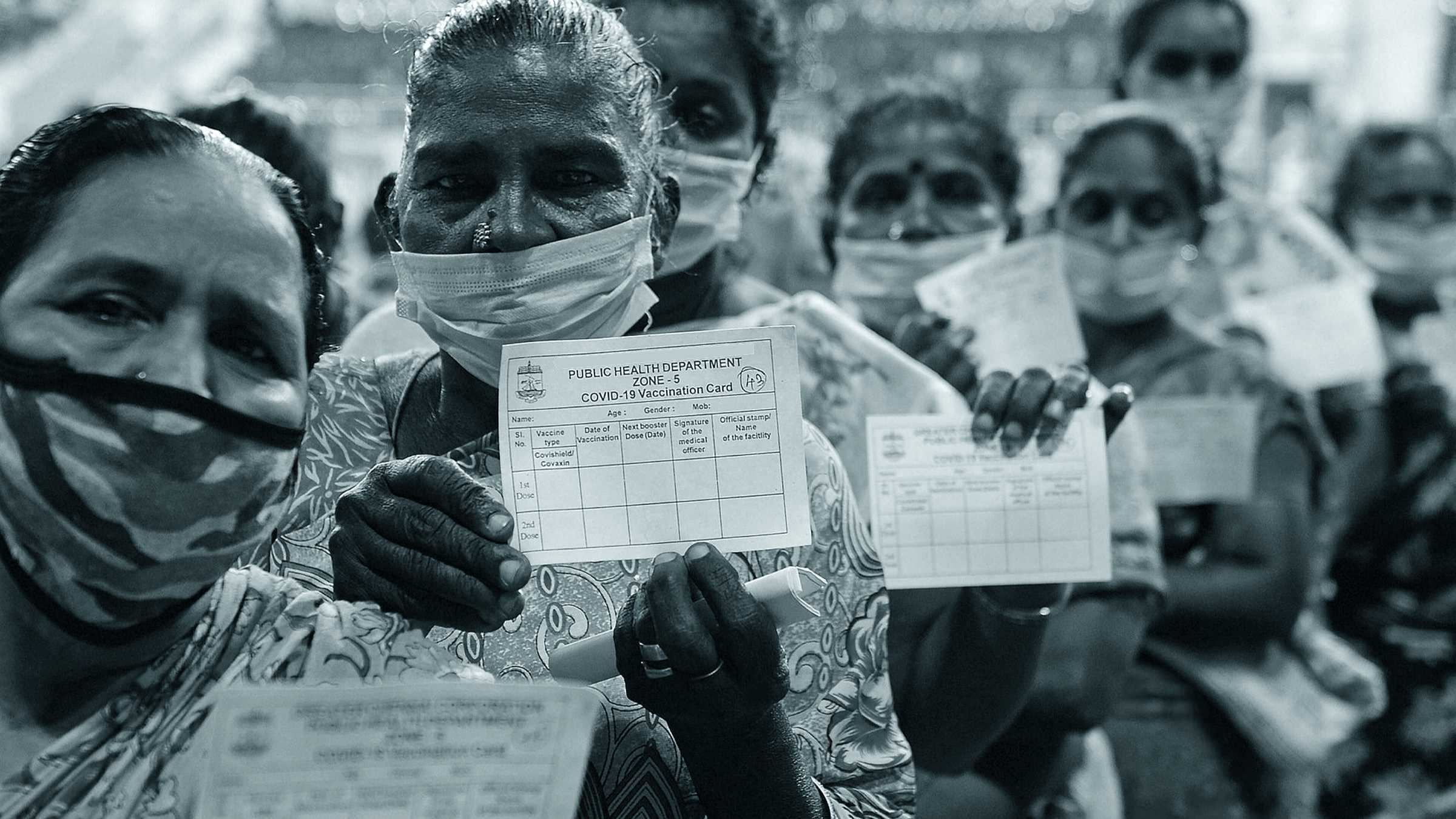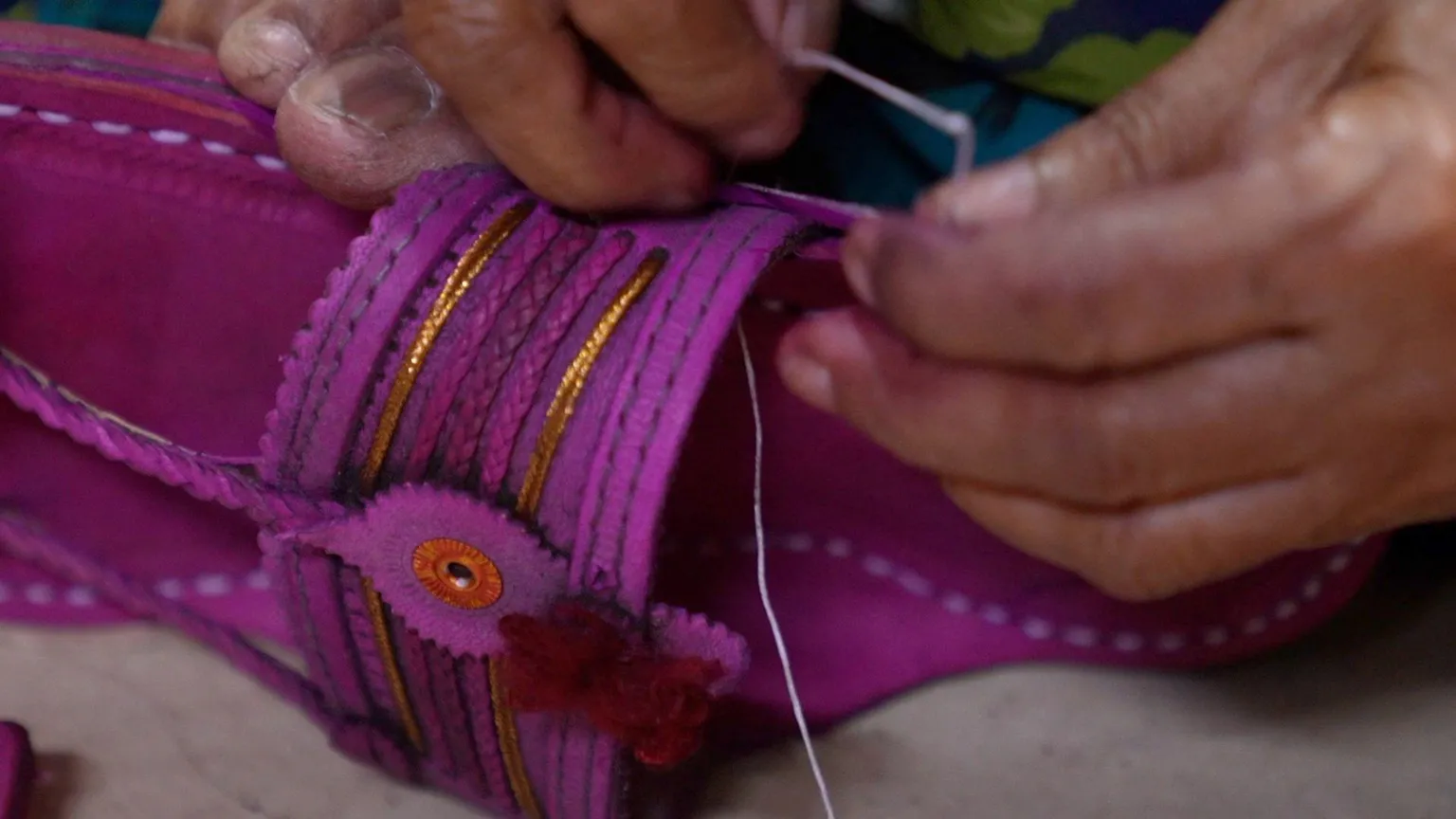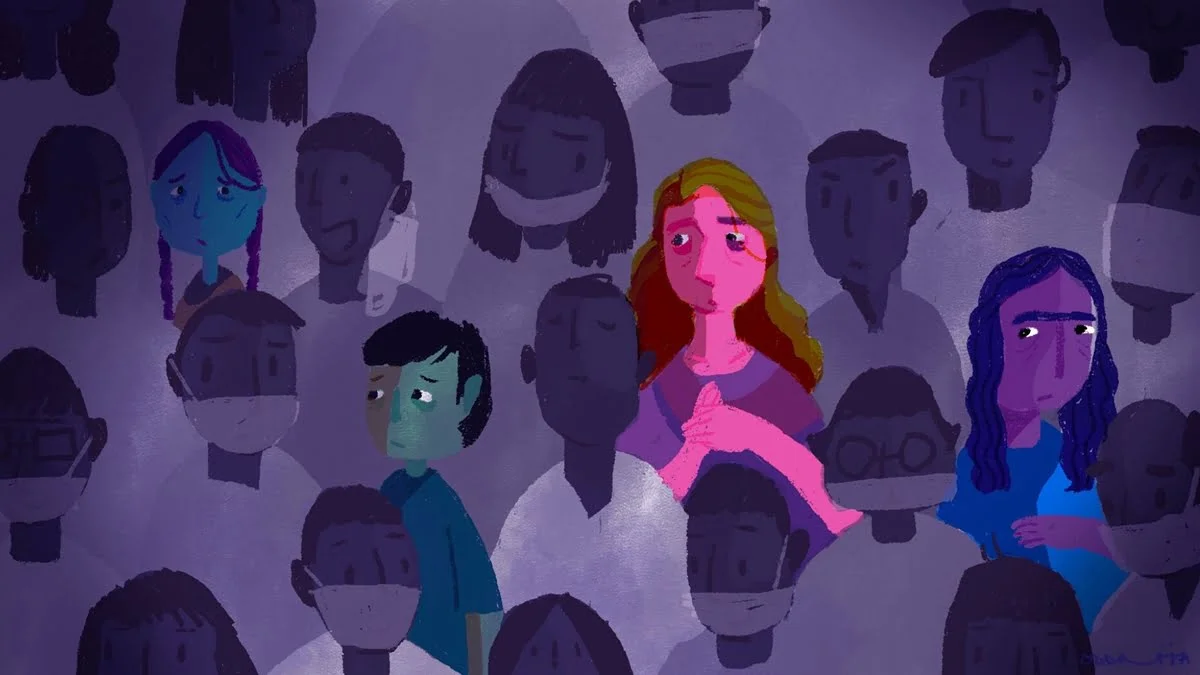In the 2023 Budget, the Central Government released several new social security schemes and new editions of pre-existing schemes, that aim to evolve with the needs of the people. For instance, the Pradhan Mantri Kaushal Vikas Yojana 4.0 will be launched this year with the purpose of skilling the youth in new age Industry courses like coding, AI, robotics, drones and soft skills. Evidently, new editions of social security schemes are provisioning new areas of up-skilling and educating the vulnerable sections of society based on the increasing digitisation needs of the industry. However, the question remains, are people able to derive benefits from these schemes?
HHH aims to ensure the dignity of life, economic mobility and transformation for marginalised communities. They work on an individual level and have identified education, self-employment and job placement as tools of change. Their initiatives follow the motive of ‘We believe, We Think and We work.’
The ‘Head Held High’ (HHH) Foundation aims to tackle this very question. This Bangalore-based non-profit envisions a world where rural poverty is eradicated universally beginning with India. At their very core, they aim to ensure the dignity of life, economic mobility and transformation for marginalised communities. They work on an individual level and have identified education, self-employment and job placement as tools of change. Their initiatives follow the motive of ‘We believe, We Think and We work.’
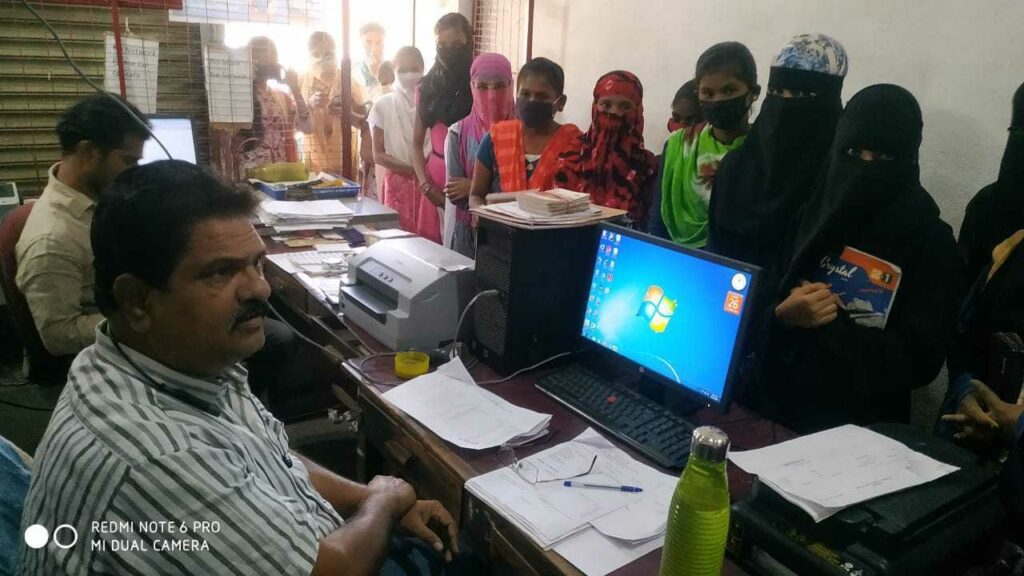
The process adopted by HHH for facilitating their initiatives is informed by their Theory of Change. Here, the individual or family is seen as the centre of change-making and requires intervention based on their unique context.
At HHH, poverty alleviation is not only seen through material lenses of education, job procurement and financial security but also as a series of informed choices that allow one to better their conditions. Moreover, alongside financial and social uplift, they also work to ensure confidence, vigour and dignity for individuals. Their past initiatives have focused on youth transformation, skill development, career preparedness, spurring entrepreneurship for women and tackling multi-dimensional poverty. One such initiative is based on social security access.
Social security schemes have always aimed to ensure targeted action for especially the economically weaker sections of society who are in urgent need of education, employment and food. These schemes attempt to facilitate different resources and opportunities that economically marginalised groups have been denied systemically by making sure that their immediate needs are met and a minimum level of security is ensured.
Social security schemes have always aimed to ensure targeted action for especially the economically weaker sections of society who are in urgent need of education, employment and food. These schemes attempt to facilitate different resources and opportunities that economically marginalised groups have been denied systemically by making sure that their immediate needs are met and a minimum level of security is ensured.
Moreover, these families are more adversely affected by changing labour policies, global warming and climate fluctuations, disasters and other contingencies. Social security schemes thus, hold the power to materially transform the lives of families who avail of them. Many of the schemes are also centred around rights and welfare which aim to socially equip the people too.
However, there exists a fundamental problem between the people the schemes are meant for and the provision of the schemes. According to the latest data by the UN from 2015, only 29% of the world today has access to social security schemes. The largest reason for the same is the lack of information about pre-existing social security schemes. Moreover, many who avail of these opportunities are unable to take it to fruition because they get stuck at the level of form-filling and other bureaucratic requirements.
HHH’s social security access initiative bridges the gap between those who would require these schemes and the benefactors of these schemes by acting as the intermediaries. Under this initiative, they match individual families with social security schemes that would suit their requirements and help the applicants on the procedural front.
HHH’s social security access initiative bridges the gap between those who would require these schemes and the benefactors of these schemes by acting as the intermediaries. Under this initiative, they match individual families with social security schemes that would suit their requirements and help the applicants on the procedural front.
How it supports women and minorities
In keeping with their Theory of Change, HHH believes in individualising interventions down to the family unit. This also works to reinforce the idea that poverty alleviation interventions cannot be seen as a monolith. They are varied by virtue of caste, class, gender, region and context. The needs of one localised community differ from those of another. In this vein, the UN had suggested the localisation of SDGs as well, to ensure that the needs of subnational communities are treated with a bottom-up approach.
In fact, social security schemes also benefit varied communities differently. For instance, women, in the community and within the family, hold a marginalised position. Access to financial security, education, health facilities, employable skills and basic human rights is much less for women. Moreover, existing practices of early marriage for women and other gender norms reduce the agency women have within the household sphere. Social security schemes which seek to provide these basic features for women are important for the economic and social upliftment they provide.
Social security schemes hold the power to transform the role of women from being seen as just routine contributors in a family to economic agents. A large part of women’s labour is unrecognised, unappreciated and unpaid even though the care work and domestic labour they do is vital for the well-being of the family. Even in the job sector, women performing unorganised labour are unable to access facilities of health, insurance, maternity leave, equal pay and much more. Social security schemes directed at women address these very concerns.
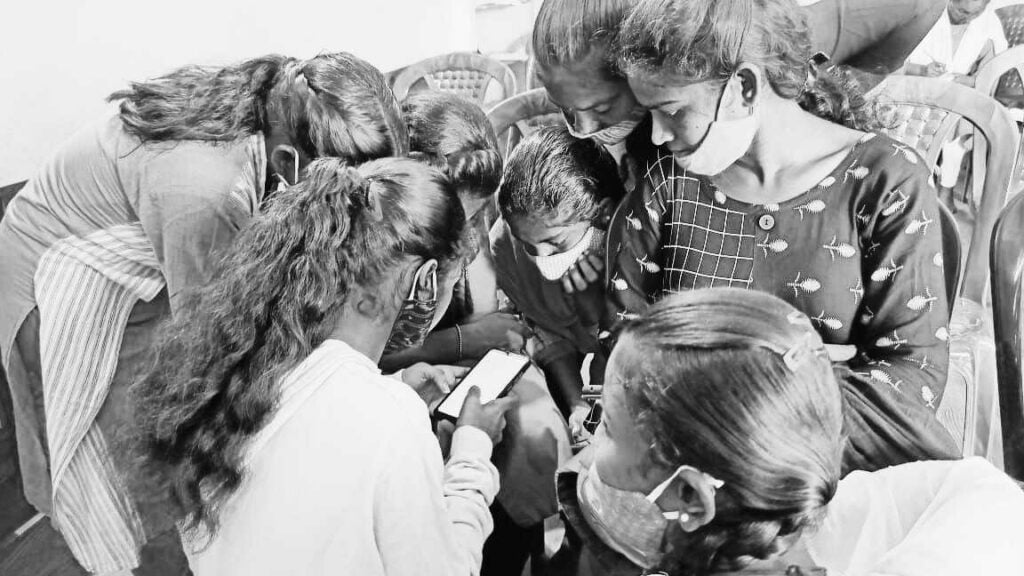
At a national conference for women’s social security held in India, the then Rural Development Minister, Jairam Ramesh, mentioned the need for social security to be ‘universal but not uniform.’ In the rural sphere, social security schemes would target women differently. Sanitation, nutrition and opportunities to learn new skills through such schemes become imminent for rural women.
Naturally, access to these schemes by women is still low and thus, HHH’s initiative becomes important to link women and other individuals with existing government schemes.
Weighing the impacts
The annual economic value of benefits accessed by families under HHH’s initiative is projected to be over ₹ 335 crores. However, beyond the startling economic benefit, the qualitative and social change offered holds high transformative value for our conceptualisation of intervention and poverty reform.
The idea of this initiative pointed out a fundamental discrepancy in the dispersion of resources. A lack of awareness among communities about the existence of social security schemes they are eligible for, and minimal ground-level work has caused a problem-solution mismatch. However, this initiative displayed the ways in which this can be rectified by contextualising reform.
The transformative power of this initiative is perhaps best understood through the story of Mahebood, a beneficiary of the initiative. Belonging to the Kalaburagi district in Karnataka, Mahebood was juggling medical expenses for his ill spouse, family expenditures and agricultural costs. His challenges multiplied as flooding and droughts disrupted his harvest.
Through the HHH initiative, Mahebood could file for a crop insurance application on the Karnataka Government Portal which insures farmers with around INR 8000-12,000 per acre. Moreover, Mahebood was linked to PM Kisan Nidhi, a Central Government scheme which provided his family with INR 6000 in three months and economically helped his family. In addition to economically helping the individual, at HHH, confidence building is valued too.
However, through the initiative, Mahebood could file for a crop insurance application on the Karnataka Government Portal which insures farmers with around INR 8000-12,000 per acre. Moreover, Mahebood was linked to PM Kisan Nidhi, a Central Government scheme which provided his family with INR 6000 in three months and economically helped his family. In addition to economically helping the individual, at HHH, confidence building is valued too.
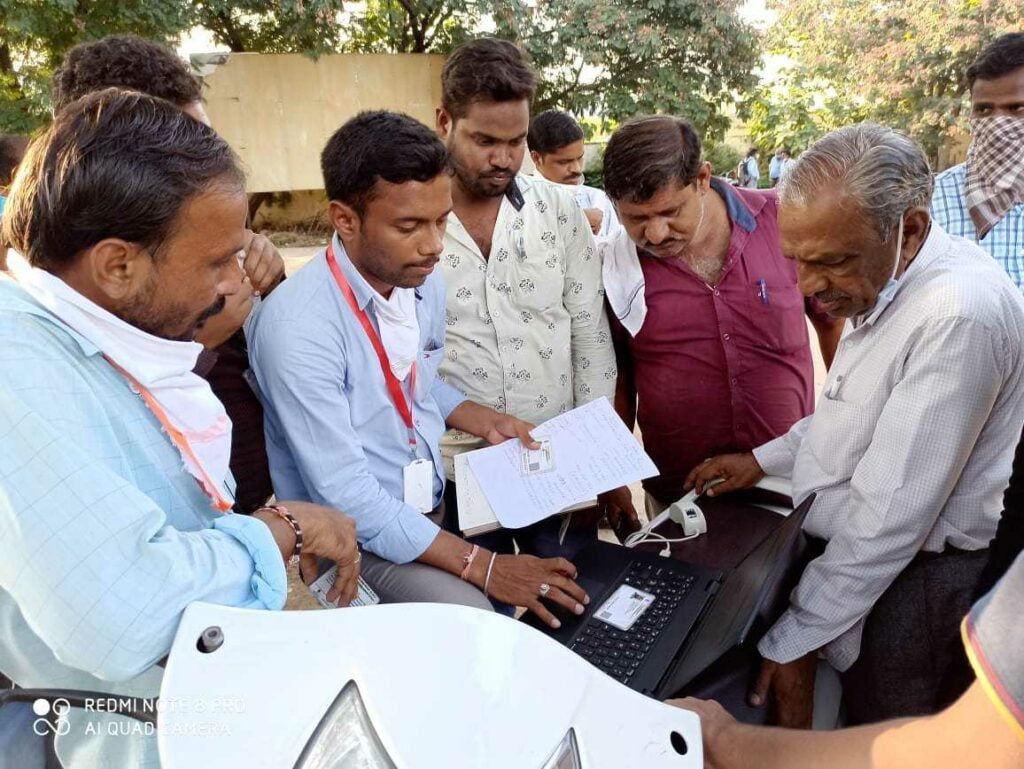
For example, Rukmini dropped out of her 12th class after three attempts, despite her desire to continue her education, family circumstances prevented her from doing so. After completing 12th grade, she decided to work and joined the MIC program at the Head Held High Foundation. She now works at Amazon in Hyderabad, packing items and earning a salary of 14,500 Rupees per month, which enables her to support her family and cover their expenses. It’s only due to the training and support from the HHH foundation, Rukmini got a second chance to uplift herself and fight against the barriers.
Access to social security schemes and a life of dignity becomes incredibly important to ensure better living conditions for those in need, especially marginalised communities and women in rural India. More effective access to these schemes, as provided by the HHH, is imperative such that these schemes can be fully leveraged and the state apparatus is pressured to cover more people, diversify existing reform and effect greater change.
You can know more about the Head Held High Foundation’s works and initiatives here.
About the author(s)
Sakshi (she/they) is a student pursuing History at St. Stephen's College, Delhi University. They are interested in issues of gender, sexuality, education and culture. They love game nights, a good film and a sleeping in.
